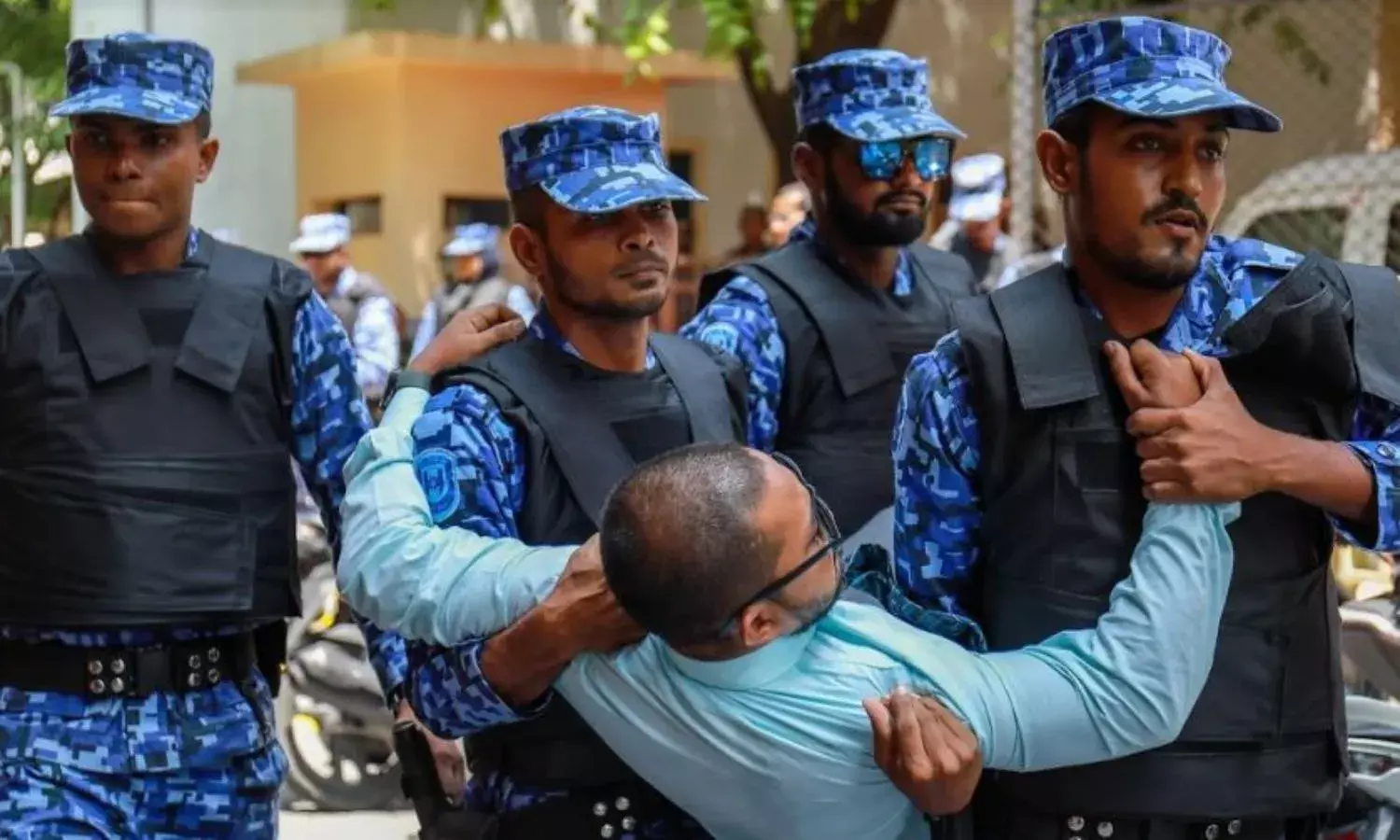Serious Doubts about Credibility of Maldivian Presidential Poll
2008 revolution brought in democracy, and also ushered in political chaos and economic stagnation

The Maldivian Presidential election is to be held on September 23. The principal contestants are the incumbent President, Abdulla Yameen, and the Joint Opposition candidate, Ibrahim Solih.
It is a battle between two sharply different ideologies: On the one hand there is Yameen’s agenda (1) to promote economic development and social welfare without regard for Western-style individual democratic rights, and (2) to protect Maldivian nationalism and Islam, the religion of every Maldivian. On the other hand, there is the agenda of the Joint Opposition to restore Western-style democracy and internationalism which helped establish democracy through a peaceful revolution in 2008. Economic development is of secondary importance to the opposition because it believes that man does not live by bread alone.
The opposition has promised that if its candidate, Ibrahim Solih, is elected, he will undo all the undemocratic actions of Yameen; reinstate disqualified MPs; reinstate the Chief Justice and a judge of the Supreme Court who were sacked and jailed; release all political stalwarts including former President Maumoon Abdul Gayoom and Mohammed Nasheed; and hold a fresh Presidential election in 18 months in which all who are now barred will be allowed to contest.
While Yameen wants to continue the Maumoon Abdul Gayoom tradition of developing the Maldives without democracy, the opposition led by candidate Solih, and the Maldivian Democratic Party chief and former President Mohamed Nasheed, want to revive the democratic tradition of 2008.
However, while the 2008 revolution brought in democracy it also ushered in political chaos and economic stagnation. Yameen takes the credit for putting the Maldivian house in order and getting economic development going with huge Chinese investments in infrastructure development and Western investments in the resort sector. He also expanded social welfare programs in health and education to reach the remotest atoll.
But according to the opposition, Maldivians have tasted democracy and are craving for it. The media has tasted freedom and is fighting for it. The opposition also believes that too much reliance on China will lead to financial and political enslavement to Beijing and alienate the democratic world and regional power India. It fears that Yameen’s one-sided policy will make the Maldives a theater of big power rivalry to its detriment.
Yameen’s supporters say that except for the idealistic youth, every sensible Maldivian will see merit in Yameen’s policies and vote him back to power. But the question that is asked by the opposition is: “Why resort to incarcerating opposition leaders, manipulating the election process and preventing international journalists and neutral observers from coming to the Maldives to cover or monitor the elections? Why not test out the claims of the two sides in a level playing field?”
The Yameen regime has made it impossible for journalists to get visas and has warned scribes that they will be detained if they enter as tourists or businessmen.
The government’s view is that if everybody who applies for a visa is allowed to enter the country, agents provocateurs could arrive, and provoke the kind of violence the country saw in 2012. And the violent incidents could be cited to delegitimize the election and pave the way for external intervention.
According to the opposition, many of the accredited observers hail from regional elections commissions under authoritarian regimes. Others are from countries and organizations with questionable democratic credentials like Organization of Islamic Cooperation, Thailand, Romania, Malaysia, Philippines and Palestine. British MPs David Amess and Ian Paisley, who had allegedly availed free holidays in Maldives, have been included. The EU has been barred.
In previous elections in 2008 and 2013, independent and political party observers were allowed to watch the entire vote counting process, witnessing the result of each ballot paper, and confirming that it was placed on the correct pile.
However, the Elections Commission has now declared that observers will not be able to witness the result of each ballot paper. Instead, observers will be shown the piles of ballot papers, after they have been bundled and stapled together, making verification impossible.
The Elections Commission has also changed the way elections observers can make a complaint during the vote counting. In previous elections, if an election observer noticed that a ballot for one candidate had been placed in the pile for a different candidate, they could immediately make a complaint and the issue would be addressed. But in this election the Elections Commission has changed the rules. Complaints are only dealt with after the final elections results have been publicly announced.
“This is deeply troubling as the complaint may not be looked into. The Elections Commissioner himself, Ahmed Shareef, was the Secretary-General of President Yameen’s political party for years,” the opposition said.



